On Mockery
Some fragmented thoughts on belittling behavior, love's wild imagination, who gets to write history, the early-autumn garden, and shishito peppers
Thursday, October 5
Grand Rapids, Mich.
When I’ve been asked to speak about the intersection between faith and sexuality, I’ve occasionally shared the story of my mom coming to cook a big dinner for me and Tristan in New York. (If you don’t know this story, you can read it here.) Given her theological convictions about homosexuality, that dinner was a tremendous gesture on her part—and one of the most beautiful gifts I’ve ever received.
Once, after I shared this story, a woman came up to me and said: “I’ll be your mother.” After I’d recovered from shock, I responded as politely as I could: While I’m sure she meant well, I don’t want another mother. I love and respect my mom deeply. She isn’t replaceable. Even with our deeply divergent convictions, even in the midst of our ongoing disagreements about theology and sexuality and worldview, I believe we can love one another well.
Not everyone agrees with this take, and I’m okay with that—mostly.
Some people have gently pushed back, asking variations on the same question: How can she love you well if she doesn’t fully affirm a core part of you? My response to that is unchanging: My mom loves me as well as she can, I’ve come to understand—it took time!—that, according to her worldview, her maternal love might be expressed in worry about my eternal soul, and I don’t need full agreement or complete affirmation to feel someone’s love. In my better moments and on my better days, I remember that my belovedness—anyone’s belovedness—isn’t contingent on any other human’s opinion; there is a divine love, beyond all other loves, that holds us.
Anyway, if I want her—or anyone else—to love me for who I am, don’t I owe it to them to do the same?
Some have rolled their eyes at my stubbornness about staying in relationship and questioned my theological arguments about grace. Some have diagnosed (incorrectly, I think) internalized homophobia. Those conversations aren’t particularly fun, but I’m willing to have them.
Others, though, have responded less charitably, with mockery. Some have reveled in snark in the form of behind-my-back jokes and cutting jibes. (I’m a reporter. I keep a good network of sources.)
It’s that last one that troubles me the most—and not because I want those jokers to be my friends or even to think well of me.
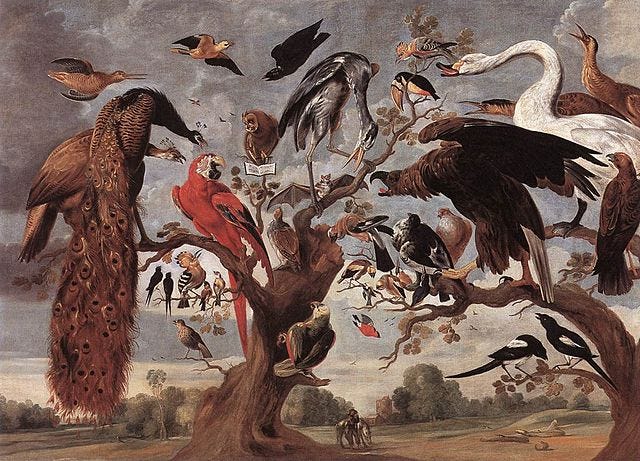
I’ve been thinking a lot about mockery recently, because it’s hard to spend any time on social media and not witness it. What didn’t feel great on the playground at recess still doesn’t feel great on Twitter or Facebook. Mockery is ridicule. Mockery is sneering, sometimes with the gloss of comedy. Mockery is derision, often delivered with a bitter laugh. And mockery grieves me, especially when it comes from those who claim to be Christians and particularly when those Christians claim to be progressives.
Let me clarify what is not mockery. Fierce disagreement isn’t mockery. Thoughtful repudiation of harmful theologies isn’t mockery. An argument defending one’s convictions, however strongly worded, isn’t mockery. All these things can be done with candor and care.
Mockery, on the other hand, puts the mocker in a place of superiority and diminishes his object. It belittles. It reduces.
“It’s just a joke,” folks will say. And sure, humor can be very specific; your sense of humor might not be my sense of humor. Still, who can’t remember the hot flash of humiliation when you realize that you’re being laughed at? Who among us doesn’t know the feeling of being the butt of a joke? Or maybe that collateral damage was never a concern.
“But they’re wrong,” folks will say. Still, who ever had their minds changed through condescension? Who ever was won over through shame or convinced to a different position by being made to feel less-than? Or maybe persuasion was never the point.
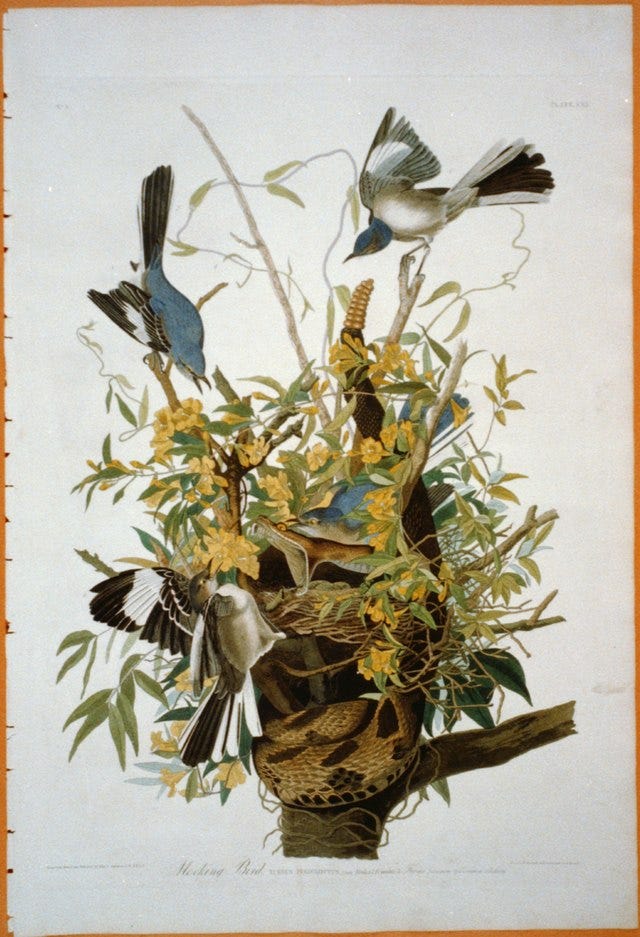
During some seasons in my life, I’ve been the mocker. Occasionally, I feel myself drawn back to those old habits. Almost always, it’s from a place of insecurity and pain—and I realize that mockery is often most scathingly dished out against those who have hurt us. I would hope, though, that those of us who have moved from a more conservative interpretation of Christianity to a more progressive one would be especially guarded about this kind of othering. We talk such a big game about not dehumanizing, not marginalizing, about being on the side of love. Is full humanity available only to those who think the right way? Are new margins acceptable as long as we’re now no longer in them? Is the love we claim only for the folks we agree with?
Some of the work that still needs to be done—some of the work that I know I still need to do—is to remember our own belovedness. Love dignifies, and love lifts up. But when you’ve been hurt, as you’re still struggling to heal, especially in a world that can be so cruel, belovedness can feel so abstract, so distant. It can seem easier to degrade someone else, to pull them down, than it is to return to love.
Some of the work that still needs to be done—some of the work that I know I still need to do—is to learn to love past versions of ourselves. Love softens, and love soothes. But it’s so difficult to treat with tenderness the people who still hold those views we now consider retrograde. It can be heart-wrenching to look into the time-traveling mirror and be gentle with who we used to be. It can seem easier to harden our current selves and to mock our past incarnations than it is to wrestle with love.
In his powerful book The Tenderness of Conscience, Allan Boesak writes movingly about love. He’s writing in the context of post-apartheid South Africa and the need for a moral recalibration that can heal politics and society and move his country toward equity and justice. But I think the love that he’s urging has more universal applications too. “To love thus is to explore the open spaces beyond our own limitations, to surrender to the power of our wider imagining, to discover the vistas of what’s possible beyond the foothills of our stunted fantasy,” he writes. “It is to discover in the other the best that we ourselves want to be, to offer the other more than we have allowed ourselves to be.”
I know I can sound like a bit of a fool, going on as I do about love. I just don’t see any other way toward collective healing. If Boesak is right, to love is to be compelled by something greater than ourselves, to draw on a wilder and more beautiful creativity, and to live into the possibility of a more gracious reality. And the world I want to inhabit—the world I long to help create—is a world that feasts on that kind of love.
What I’m Reading: As I was thinking about the power of love, I came across a moving essay by Yiyun Li about its limits. I’m still wrestling with her assertion that “love solves very little of the most menacing and devastating problems…. Love, so paramount a matter in life, is not always enough to save a life.” I know she’s right in the micro sense. Even if love can’t solve these problems, doesn’t it at least mitigate some of them? And what’s the alternative? I’d like to know what you think.
On love of a different sort: When I was growing up, my grandparents taught me to see myself as proudly Chinese. It was crucial to them that I knew—and that I honored—my heritage. But as people whose lives were indelibly marked by Chinese communism—my grandfather pastored and taught in Canton until several years after the 1949 revolution—they always were careful to differentiate between Chinese culture and the Chinese regime. That distinction is often lost on many people, not just in the U.S. but also increasingly in China, where the government has worked assiduously to impose its version of history and identity, flattening a richly diverse country.
A couple of weeks ago, the New York Times ran an essay adapted from the journalist Ian Johnson’s new book, Sparks; China’s Underground Historians and Their Battle for the Future. In China, a small and brave group of writers has continued to record and publish versions of history that defy the official party line. This is a remarkable act of courage in a country where it’s illegal to discuss the 1989 Tiananmen Square massacre. Even in my beloved Hong Kong, which technically enjoys more freedom than the mainland, the authorities no longer allow public commemorations on June 4th and public-library shelves have recently been cleared of books that talk about the bloody crackdown.
The question of who gets to write history is an important one. All over the world, we are witnessing a trend toward constraining expression and sanitizing the past. “We can look at individual battles and see defeat,” Johnson writes. “But we can also seen an endless cycle of creation, of new sparks that leap off the flint of history every time it is struck.”
What I’m Growing and Cooking: It’s wild that, on Tuesday, the high temperature here in Grand Rapids was 86 degrees—a new record that’s 20 degrees above normal for early October. While things have slowed down in the community garden, I’m still coming home with zinnias and tomatoes almost every day. In the backyard, cabbage-white caterpillars have destroyed my fall crop of backyard bok choy and some loathsome creature, as yet unidentified, took a single bite out of each jalapeño. But we did eat two baby zucchini the other night—the first zucchini I have ever successfully grown! I harvested them early because I succumbed to my fears over the unidentified backyard buffet-goers. And we had one last snack of shishito peppers last night. They’re so good just flash-fried in hot oil in the wok until they’re charred on the outside. Then I sprinkle them with a little flaky sea salt.
Fozzie and I have still been going to the garden almost every day. Part of the motivation is to give Fozzie extra time outside. Another part is my desire to bear witness to the entire life cycle. Where can I spot beauty even as the textures and colors of the garden change? The more time I spend in the garden, the more my eyes perceive things that I’ve never noticed before. Yesterday, I interrupted two grasshoppers mating; I averted my eyes as quickly as I could. Then I saw the underside of a zinnia: I never knew that it had its own particular elegance, because I’m always looking at the flowers from the top.
That’s all I’ve got for this week. My brain is fried! I did manage to send a first draft of Good Soil into my editor earlier this week. “I hope this is adequate,” I told him. “I really also hope you believe in shitty first drafts, because, even though Anne Lamott annoys me sometimes, I am going all-in on that argument.” Thanks to all of you who have cheered me on and sent encouragement. And if you’ve never read the “shitty first drafts” section of Lamott’s Bird by Bird, you can find it here.
Someone needs to take over managing my life: Apparently, I thought it would be a good idea to write a sermon the same week my book was due. I’ll be preaching at Crosspointe in Cary, N.C. this Sunday. We’ll be exploring the story of the daughters of Zelophehad, because I think 3,500-year-old Hebrew case law and ancient property-rights debates are super-exciting. All are welcome to join us, whether in person or online, at 10 a.m. ET.
What’s on your hearts and minds? What are you seeing in your garden as summer surrenders to autumn? Am I irritating you yet with my droning on about love?
I’m so glad we can stumble through all this together, and I’ll try to write again soon.
Much love,
Jeff


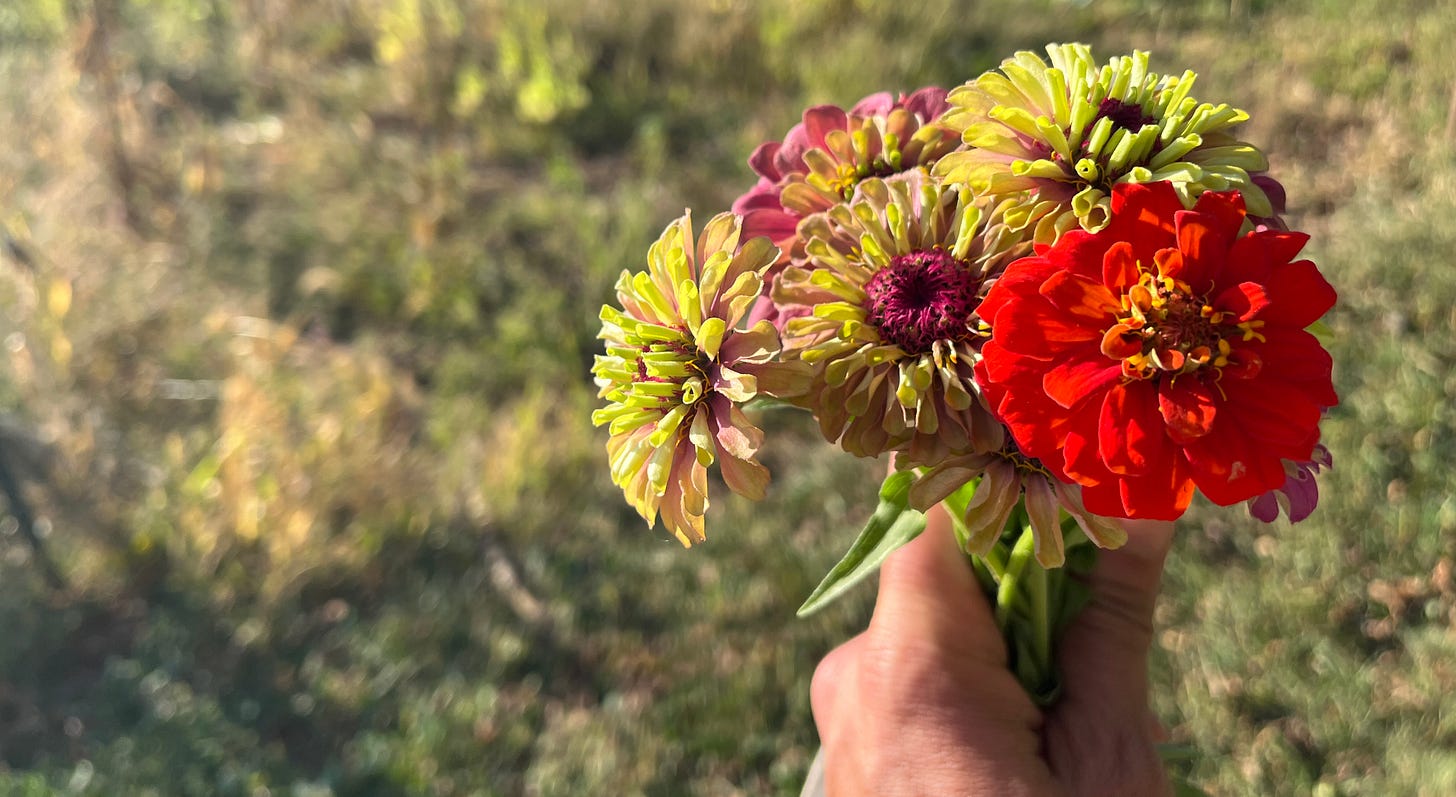
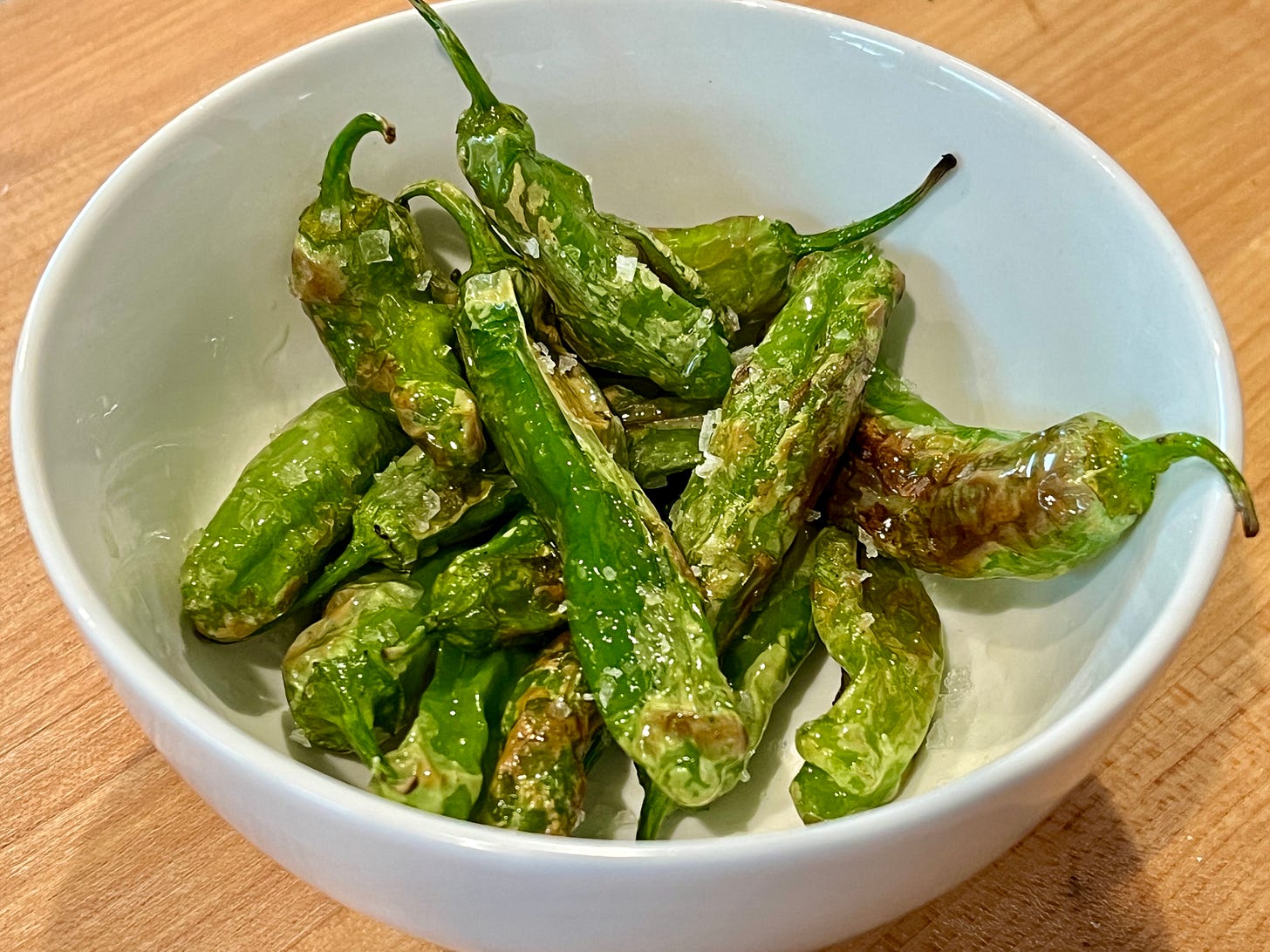
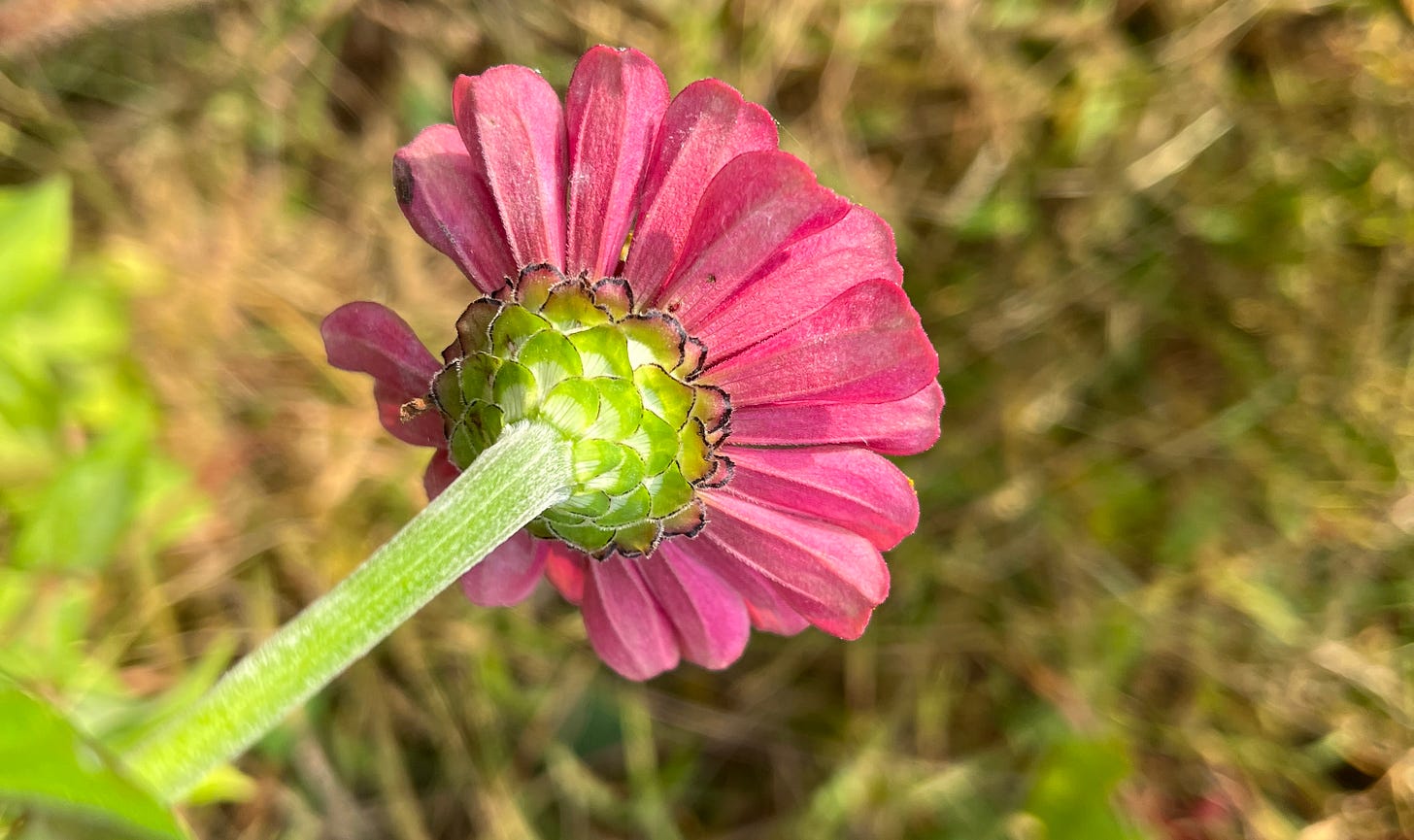
Thank you for sharing Yiyun Li's essay. Putting her quote in context helped see where she was coming from. I can only speak for myself, but I know that I used to conflate love with control. If I loved someone enough, I could heal them or change them or fix their lives. As I have gotten much older I have noticed two things about love; it is about being with a person as they are and allowing myself to see the beauty in them as they are in that moment, and that love is a deeply mysterious. I cannot always see how my loving a person affects them, but I certainly know how someone loving me sustains me. Thank you so much for this! Peace.
Spot on. And I like that you get to the wound underneath the mockery and derision. To rest (and heal) in our belovedness gives us the buffer we need to not lash out at or write off those that land on the other side of an issue. There is so much pain at the heart of all the anger blasting away. Thanks for your wisdom and example in how to grow in love in the midst of all the hurt and anger.
Our garden. Well. I gave up on vegetables finally. It just wasn't producing. But the flowers are going nuts, and it is so beautiful! The pollinators are feasting and we are dumbstruck every time we walk out the front door. Replacing our lawn was the best thing we have ever done with our yard.